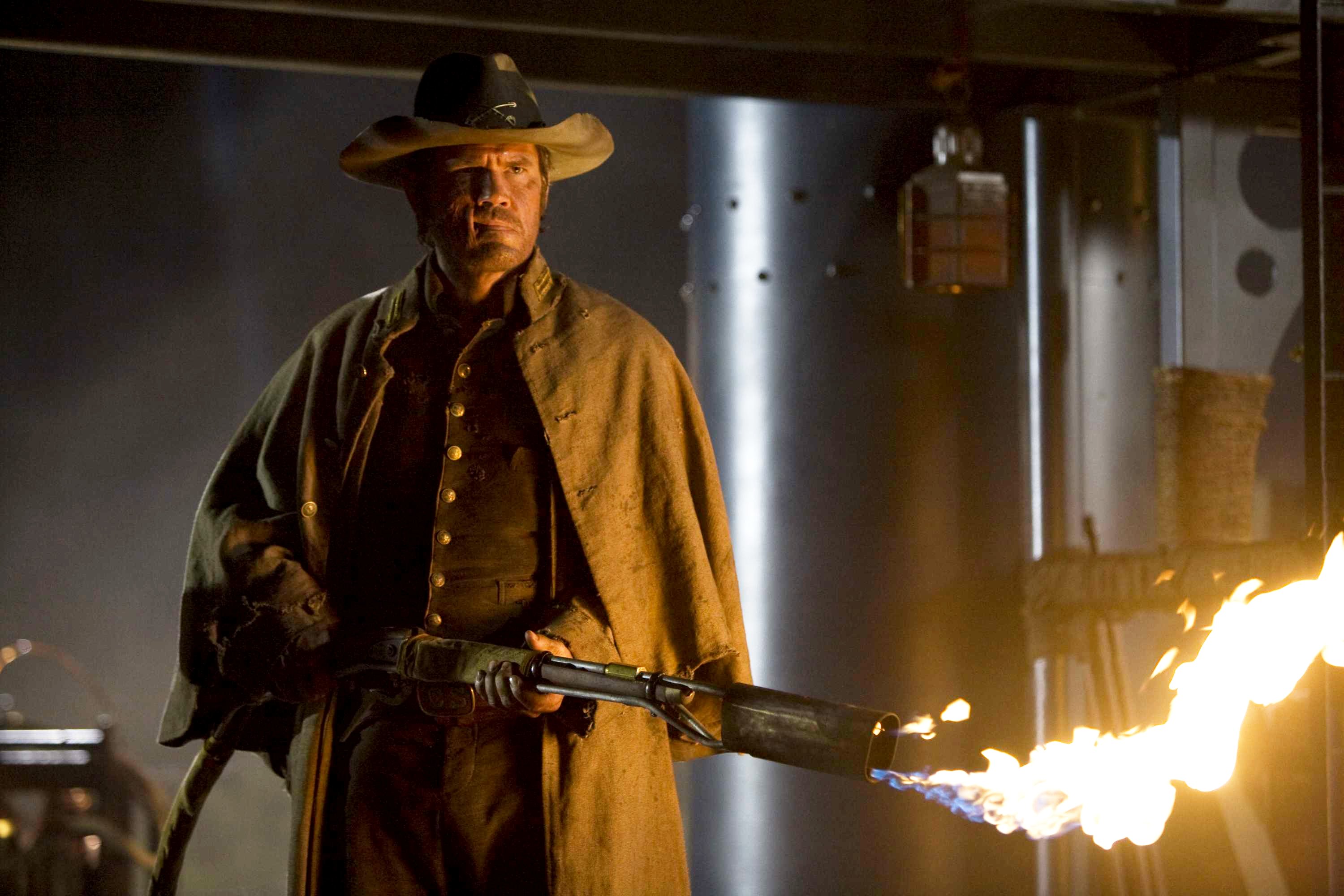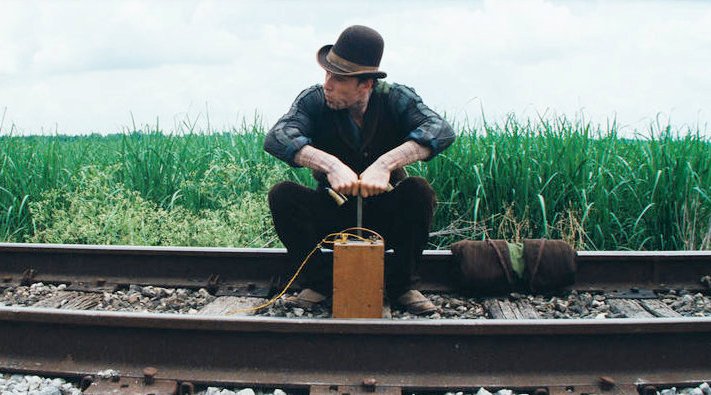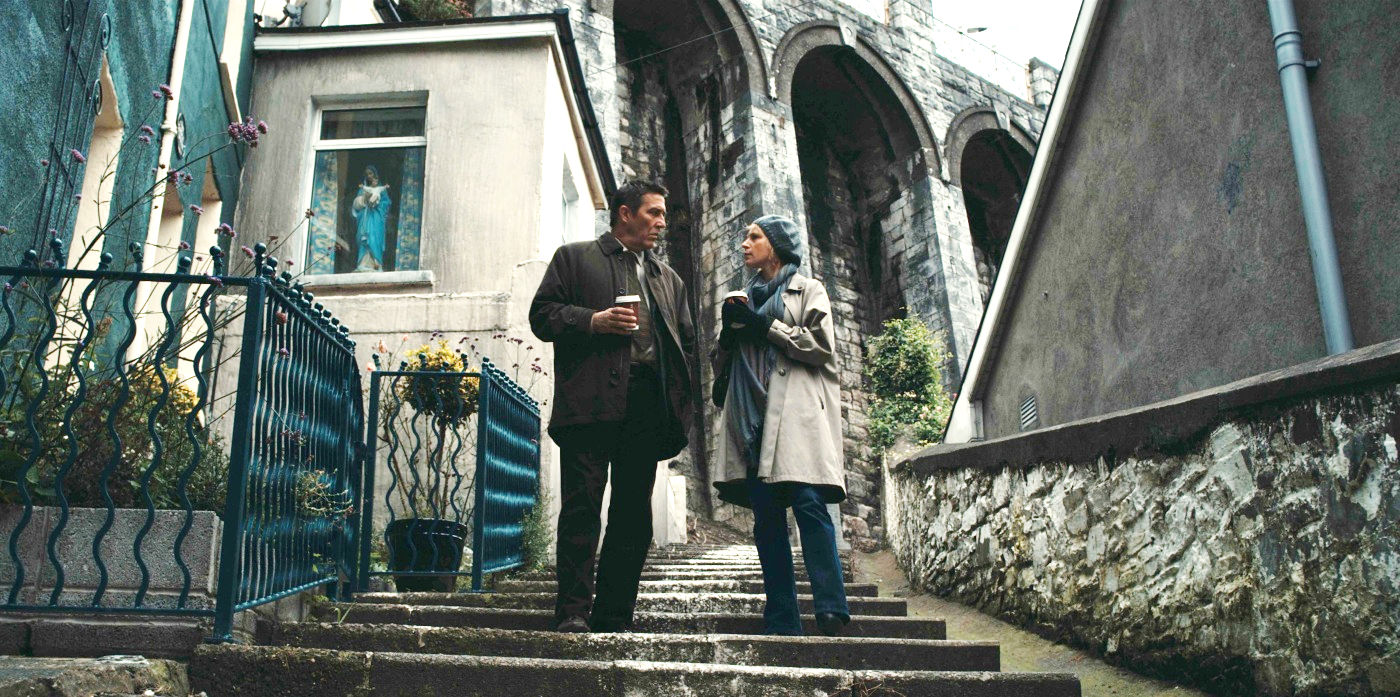
I highly doubt any compadres and comadres out there need me to tell them at this late date that Jimmy Hayward’s loud, dumb, Hoobastank-ish adaptation of DC’s Jonah Hex is, all things considered, a lousy film. So, to be clear right up front: In no way am I recommending that anyone actually sit through the durned thing, especially if your own money is involved. But, I am forced to admit: While I may have just been in a summer-afternoon, World Cup-enhanced good mood at the time, I actually found Jonah Hex to be a pretty entertaining lousy film, if you set your brain to numb and roll with it.
For, however defiantly stupid Hex is for most of its run, and yes, Hex is extremely, flagrantly stupid — we know that from the horse-mounted howitzers in the first reel — at least the movie is aware enough of its drive-in badness just to let its Weird Western Tales freak flag fly. (Speaking of Hex’s comic book origins, the obligatory source material disclosures: I’ve been aware of the character since he popped up in the Crisis way back when, but never really followed him, even when he got sent into the far-flung future for some reason, and I couldn’t tell you much about Hex beforehand except the scar.)
So basically, I found Jonah Hex to be on the bizarrely-enjoyable, “TNT New Classic at two in the morning” side of terrible, as opposed to the just-plain-irritating-terrible of, say, 1999’s The Wild, Wild West. (Or, to take two recent examples, Alice in Wonderland or Clash of the Titans.) True, gun-for-hire John Malkovich seems really bored as this twisted tale’s Big Bad, Confederate general Quentin Turnbull. (Like Hugo Weaving in The Wolfman, another genre turn I thought would have to be fun no matter what, Malkovich is a letdown. Even in other easy paychecks like Con Air, I’ve never seen him so listless.) But the Malkatraz choosing to phone-it-in notwithstanding, there’s still a lot of goofy fun at the fringes of Jonah Hex.
I mean, we’ve got rising star Michael Fassbender (of Inglourious Basterds, Fish Tank and, soon X-Men: First Class — He’s the Magneto to James McAvoy’s Professor X) as a jolly, lilting Irish-immigrant henchman in a bowler hat. There’s Will “Gob Bluth” Arnett playing it straight as a McClellan-esque Union general, Jeffrey Dean Morgan (of Watchmen and The Losers) as a wordy and depressed zombie, Lance Reddick (nee Major Cedric Daniels) slumming it as Hex’s Q, American Beauty‘s since-AWOL Wes Bentley randomly popping up very briefly as Southern Gentleman #2…and that’s not even getting into the random Civil war-era gladiatorial bat-beasts and whatnot.
And then there’s Hex himself: Josh Brolin, who, not unlike Adrien Brody and Sarah Polley in Splice, carries the stoic deadpan — with a glint of laughter in the eyes — of a man who seems to be in on the joke. If nothing else, Brolin — after spending two decades not-really-making-it between 1985’s The Goonies and 2007’s No Country for Old Men — seems to be getting a real kick out of being an A-Lister carrying his own B-level comic book film. For her part, Megan Fox is not much to write home about here, but she’s easy on the eyes and acquits herself well enough. I know she’s often a target of many people’s weirdly vociferous wrath. But I’ll give Fox this: If Hex and Jennifer’s Body are any indication, she seems to have a pretty solid sense of her own limited range.
Now, you’ll notice I’ve gone several paragraphs in now without mentioning anything involving the actual story, and that should give you a sense of its quality. But, basically, Hex wants revenge on the aforementioned Gen. Turnbull, since he’s the man who disfigured him (good work, make-up people), murdered his family before his eyes, and inadvertently gave Hex the power to commune with the dead (although, apparently not with his family, which is where you’d think he’d then spend most of his time.) Turnbull, meanwhile, wants to level the Union on its 100th anniversary, as payback for that whole Civil War thing — you may have read about it. (The engine of his centennial-obliterating master plan are highly dangerous WMD, apparently once engineered by Eli Whitney — In practice, they’re glowing golden orbs not unlike the pinkish bombs Jar Jar et al were flinging around Naboo in The Phantom Menace. And, yes, the fact I just mentioned Episode 1 should again give you a sense of what you’re in for here.
So, yeah, the film is bad, no doubt. But I still definitely enjoyed myself through its schlocky-grisly awfulness. If you’ll allow me to explain by digression: Speaking of John Lee Hancock’s amiable but slightly dull adaptation of The Alamo in 2004, I finished up by saying of Billy Bob Thornton’s Davy Crockett that “Billy Bob is so good here that I spent most of the film contemplating who else I’d cast alongside Thornton for the definitive American History miniseries. Christopher Walken as 1850 Henry Clay? Fred Thompson as James Buchanan? Adrien Brody as Mexican War-era Lincoln? The possibilities are endless.”
And, with that in mind, I think the point where Hex sorta sold me as Z-grade entertainment, despite its pretty unmitigated badness otherwise, is when Aidan Quinn (most recently playing a drunk-of-a-different-color in The Eclipse) shows up as President Ulysses S. Grant, a man who needs that outlaw and ex-Confederate rapscallion Jonah Hex on the side of God and country, his dirty deeds be damned, or else. If you’ve been coming ’round these parts and reading the movie reviews for any amount of time, you’ve probably noticed I have a weakness for both historical recreations and genre outings. Well, however much of a bomb in the end, Jonah Hex at least has the good sense to frolic happily at that crossroads for awhile.



